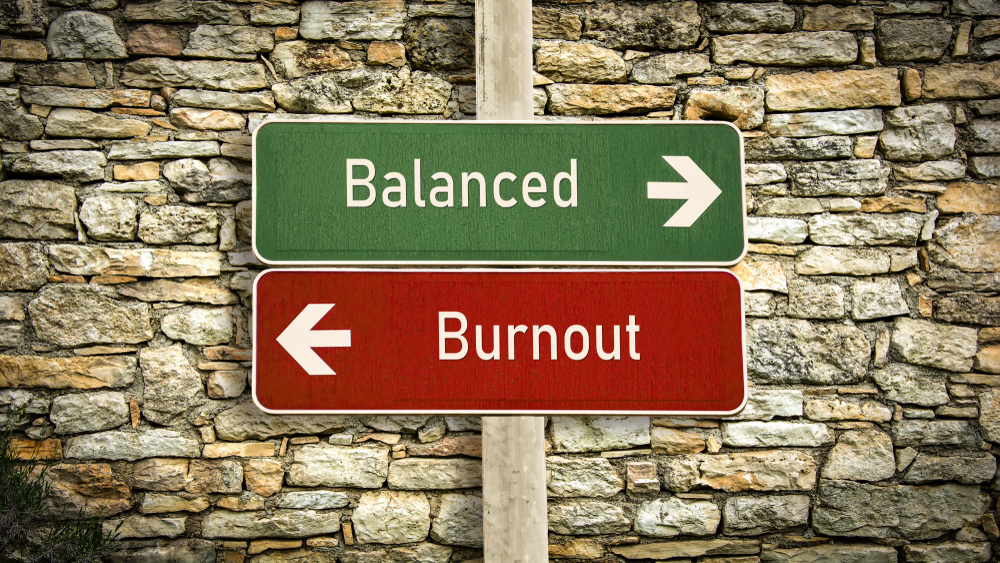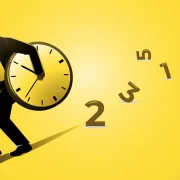Is Burnout a Millennial Problem?

Sometimes we need to take a moment, step back, and rest. Your personal and work life can become a source of stress and anxiety, especially when it overwhelms you. This is when burnout can occur — a form of exhaustion that results from prolonged emotional, physical, and mental stress.
The World Health Organization has recognized “burnout” as an “occupational phenomenon.” This was in the aftermath of the lockdown during COVID-19, where the global pandemic disrupted our work-life balance.
But there is one demographic particularly affected by the risk of burnout. Millennials (born 1981 – 1996) have shown a sharp increase in mental health issues, primarily depression, compared to previous generations.
Why Are Millennials So Burnt Out?
Due to longer work hours and stagnant wages in a troubled economy, millennials are suffering from high rates of burnout — many quitting their jobs because of mental health issues. In January 2022, the New York Times reported a record number of workers leaving their jobs, a phenomenon reminiscent of the great resignation in 2021.
Statistically, millennials aren’t working longer hours than other generations. Data shows that 75% of millennials aged 25-34 work 31-50 hours a week, the same as those aged 35-64. Burnout isn’t an exclusive problem for younger generations; 52% of adults experience burnout, a 9% rise from pre-covid times.
But millennials face pressures other generations never had to contend with. The pressures of social media combined with job-related stress have exacerbated the issue of burnout amongst young people. Recently, the author Anne Helen Petersen wrote a book entitled Can’t Even: How Millennials Became the Burnout Generation. This links the burnout experience to millennial interactions with technology and the societal pressures of achieving financial stability.
Related: How to Respond to the Great Resignation: 3 Ways to Improve Retention
What Problems Are Millennials Facing?
Generation X (born 1960s – 1980s) and millennials have seen a decline in physical and mental health compared to their parents and grandparents of previous generations.
Depression and anxiety have had the largest growth in prevalence in recent years for millennials in particular. Recently, the Harvard Business Review found that half of the millennials surveyed between the ages of 24 and 30 said they had left a job for mental health reasons. This is compared to just 20% of the general population attributing resignation to mental health issues.
Depression and anxiety are both symptoms of burnout, particularly due to work-related stress that leads to physical and emotional exhaustion.
Why Is Life So Hard for Millennials?
Millennials are not the only generation that suffers from job burnout. But, some generational factors make burnout amongst millennials at work more common:
A Challenging Path — Most millennials experienced the Great Recession of 2008, accepting jobs out of financial necessity rather than ambition. Burdened with vast amounts of student debt, millennials are among the most educated of all generations but also the most stressed.
Society is to blame, too, with its “hustle culture” pressurizing millennials to work hard and get ahead. In tandem with rising house prices and stagnant wages, millennials at work are increasingly likely to burn out quicker than other generations.
Technology — The millennial generation has grown up with smartphones and social media, unlike previous generations. A whopping 93% of millennials own a smartphone, and 86% use social media. The blue light emitted from smartphones and tablets has been shown to disrupt sleep patterns as artificial lighting keeps the body awake for longer, leading to fatigue. Add work-related stress, and it’s no wonder millennials are burnt out.
Social media has also had an unprecedented impact on millennials, with 43.9% saying they would prefer a world without it. Thanks to apps like Instagram and Facebook, the pressure to look a certain way and have a successful career at an early age has made an entire generation feel like they’re underperforming.
Poor Diet — Not only environmental factors contribute to millennial burnout at work. Poor coping mechanisms like a bad diet and overconsumption of alcohol and caffeine wreak havoc on sleep quality and mental health. Quarantining in the pandemic impacted eating habits, with 53% of young people eating less than three meals a day. With less time on their hands, millennials snack more frequently, turning to convenience to fit in with a stressful lifestyle.
Signs of Burnout in the Workplace
Although millennials at work are more likely to be affected by job burnout, it’s a condition that can affect anyone. If constant stresses leave you feeling disillusioned, powerless, and exhausted, you may be showing signs of burnout. The negative effects of burnout make all aspects of life a challenge — not just work. Your body and immune system suffer, making you more susceptible to illnesses. That’s why it’s vital to deal with burnout right away.
Concerned you’re burnt out? Here are a few signs to look out for:
1. Feeling Drained — You feel exhausted and drained. This can materialize in frequent headaches or migraines and aching muscles. Changes in appetite and sleep habits are also physical symptoms of burnout, as your body becomes affected by acute stress.
2. Self Doubt — Emotionally, you might experience a feeling of failure and self-doubt as a loss of motivation — accompanied by decreased satisfaction and an increasingly negative outlook.
3. Procrastination — You withdraw from responsibilities, procrastinate, and use food, drugs, or alcohol to cope with stress. You might find yourself taking out your frustrations on others or isolating yourself from social interactions.
How to Prevent and Deal with Burnout
If any of the signs above apply to you, or you’re already past breaking point, don’t try and push through the exhaustion. Continuing as you are will cause more emotional and physical damage. It’s time to take a moment, pause, and learn how to overcome and prevent burnout.
When you’re feeling burnt out, it can be difficult to find the energy to care and do things for yourself. But, you can take positive steps to bring your life back into balance. One of the ways to do this is by reaching out to a therapist or attending careers counseling. Having someone to talk to and listen to your stresses will help you realign your priorities.
If your burnout is work-related, then look at reframing how you approach your workday. Organizing your work helps with your work-life balance, and make sure you book time off in advance to unwind. Take a break from technology from time to time and align your self-care priorities with work, whether that’s rest, a healthy meal, or exercise.
Say Bye to Burnouts
Recognizing burnout before it happens is the first step. Sometimes, we’ll push ourselves to the limit before we acknowledge we can’t do it anymore. Don’t let this be you. Burnout can have severe consequences on mental and physical health and your other colleagues — particularly when you have to take time off as a result.
Track attendance and productivity with Handdy’s employee monitoring software that improves workflow and helps prevent burnout before it happens. Start a free trial today.



